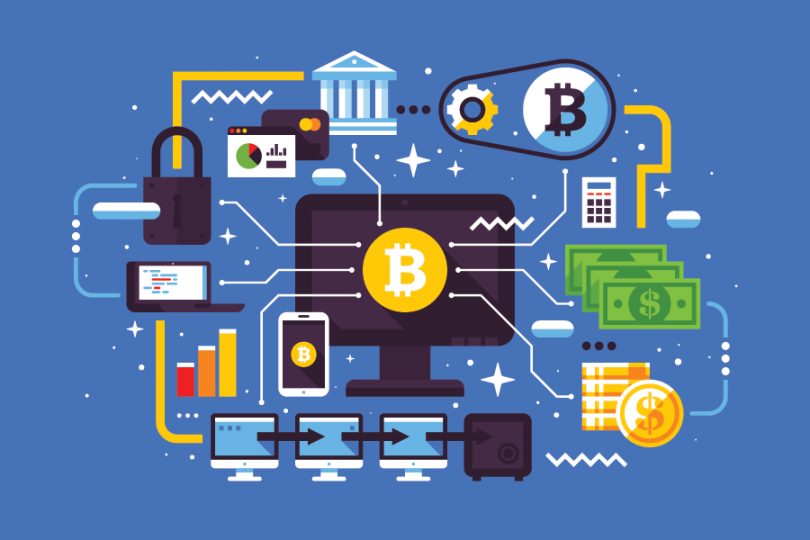
A Blockchain is a digital record of transactions. The name comes from its structure, in which individual records, called blocks, are linked together in a single list also known as sequence. They are used for maintaining the record of transactions made with crypto currencies, like Bitcoin, and have many other applications. Blockchain could be used to securely or efficiently transfer user data across platforms and systems. The technology could also be used to maintain or protect records of real estate ownership, titles and etc.
How Blockchain Will Change the World
Internet of Things (IoT): In recently, Internet of Things (IoT) such as cars, doorbells, buildings and even refrigerators that are embedded with software, network connectivity and sensors. Nevertheless, because these devices operate from a central location that handles communications, hackers can gain access to the car you are driving or to your home. According to Kamil Przeorski, an expert in Bitcoin or Ethereum capabilities, Blockchain has the potential to address these critical security concerns because it decentralizes for all of the information and data. This is increasingly more important as Internet of Things capabilities increase.
Banking and Payments: Not only does blockchain allow anyone to exchange money faster, more efficiently and more securely (bitcoin currency), but some banks are already working on adopting blockchain technology to improve for their transactions.
Cyber-security: Many data is verified and encrypted in blockchain using advanced cryptography, making it resistant to unauthorized changes and hacks. Centralized servers can be many susceptible to data loss, human error, and corruption and hacking. Many hacks are seen in the previous few years with Target, Verizon, Deloitte and Equifax. Using a blockchain decentralized, distributed system would allow data storage in the cloud to be more robust and protected against attacks.
Government: If corrupt politicians and long lines at the DMV give you a headache. With blockchain, we could reduce bureaucracy and increase security, efficiency and transparency. Welfare and unemployment benefits could also be more easily verified and distributed and votes could be counted and verified for legitimacy.
Unified Communications: Blockchains can enable faster, safer and more reliable automated communication. Automated and digital communication based on pre-built algorithms is already occurring at scale in some industries. For instance of this include emails, system alerts and call notifications. Matt Peterson, co-founder of Jive Communications and an early adopter and miner of Bitcoin that while a lot of communication is currently automated, this type of communication is generally non-critical and asynchronous.
Blockchains can shift the playing field to allow authorized, bi-directional communications and transactions that occur more freely in an automated environment and produce an immutable record of communication. This will greatly enhance the safety and reliability of our communications.
Crowdfunding and Donating to Charities: Donating to a worthy cause is never a bad idea. Block-chains can help ensure that money gets exactly where you need it to go. Bitcoin-based charities are already creating trust through smart contracts or online reputation systems and allowing donors to see where their donations go through a secure and transparent ledger. In currently, the United Nations’ World Food Programme is implementing blockchain technology to allow refugees to purchase food by using Iris scans instead of vouchers, cash and credit cards.
Rentals and Ride-sharing: Uber and Airbnb may seem like decentralized networks, but the platform owners are in complete control of the network and naturally take a fee for their service. Block-chain can create decentralized peer-to-peer ride-sharing apps and can allow car owners to auto pay for things like parking, tolls and fuel.
While block-chain is still relatively new and many experiments will fail before they succeed, the possibilities for innovation are endless. It will affect retail, energy management, online music, supply chain management, consulting, real estate, forecasting, insurance and much more. Let’s prepare ourselves for a future where distributed, autonomous solutions will have a huge role both in our personal lives and in business.
Healthcare: The centralization of such sensitive information makes it very vulnerable. With all of the private patient data that hospitals collect, a secure platform is necessary. With the advent of block-chain, hospitals and other healthcare organizations could create a centralized and secure database, store medical records and share them strictly with authorized doctors and patients.
Lorem ipsum viverra feugiat. Pellen tesque libero ut justo, ultrices in ligula. Semper at. Lorem ipsum dolor sit amet elit. Non quae, fugiat nihil ad. Lorem ipsum dolor sit amet. Lorem ipsum init dolor sit, amet elit. Dolor ipsum non velit, culpa! elit ut et.
Lorem ipsum dolor sit amet elit. Velit beatae rem ullam dolore nisi esse quasi, sit amet. Lorem ipsum dolor sit amet elit.